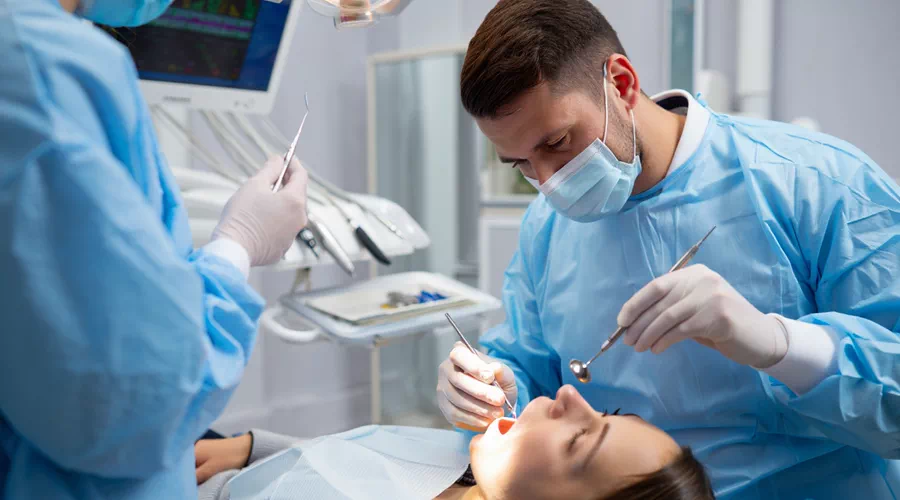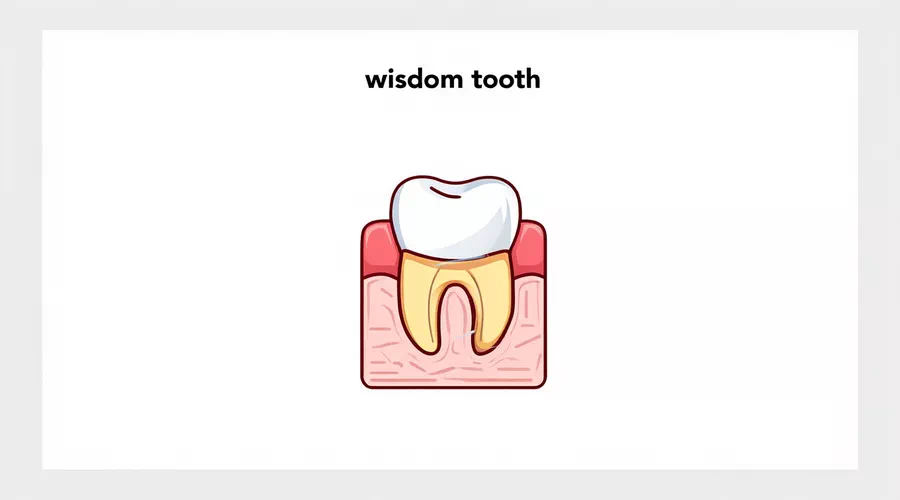The question of wisdom teeth removal has always generated debate and controversy in the dental world. There is no single opinion that suits absolutely everyone, and the decision should always be made individually, after a thorough assessment by a dentist. Wisdom teeth, which usually erupt between the ages of 17 and 25, often cause various problems, but in some cases they integrate perfectly into the jaw without causing any inconvenience.
So, when is it worth thinking about removing wisdom teeth?

Lack of space in the jaw
Modern humans, unlike their ancestors, have a smaller jaw, which is due to the evolution of eating habits and softer food. Wisdom teeth simply do not have enough space to erupt normally. As a result, they can erupt partially, at an angle, rest against neighboring teeth, causing pain, inflammation and even damage to the roots of neighboring teeth. Such improper eruption creates a favorable environment for the development of bacteria, which can lead to caries, gum inflammation (pericoronitis) and even more serious infections.
Dystopia and retention of wisdom teeth
Dystopia is the incorrect position of a tooth, and retention is its retention in the jaw bone. Wisdom teeth that are dystopic or retained often become a source of chronic inflammation, pain, and discomfort. They can put pressure on neighboring teeth, causing them to shift and malocclusion. In some cases, retained teeth can cause cysts and even tumors of the jaw.
Caries and other complications
Due to their remote location and difficult access, thise teeth are often difficult to clean. This creates ideal conditions for the development of caries, which spreads quickly and can affect not only the wisdom tooth itself, but also the neighboring tooth. In addition, wisdom teeth, especially partially erupted, can cause gum inflammation, which is accompanied by swelling, redness, pain and even purulent discharge. In severe cases, pericoronitis can lead to an abscess and phlegmon.
Removing wisdom teeth is not always necessary
There are cases when these teeth can function quite successfully and not cause any problems. If wisdom teeth have erupted correctly, have enough space in the jaw, do not cause pain, inflammation and do not interfere with the bite, then there is no need to remove them. Moreover, wisdom teeth can even be useful in the future, for example, as a support for dentures.
The decision to remove should be made after a thorough examination and consultation with a dentist. The doctor will conduct an examination, take an X-ray and assess the condition of the wisdom teeth, their position in the jaw and the presence of any complications. Only then can an informed decision be made about the need for removal. Remember that prevention is always better than cure, so regular visits to the dentist and proper oral hygiene will help you maintain the health of your teeth and avoid many problems.
Want to schedule an appointment?
Mo-Fr 8:00 am – 5:00 pm
Sa 9:30 am – 3:00 pm

